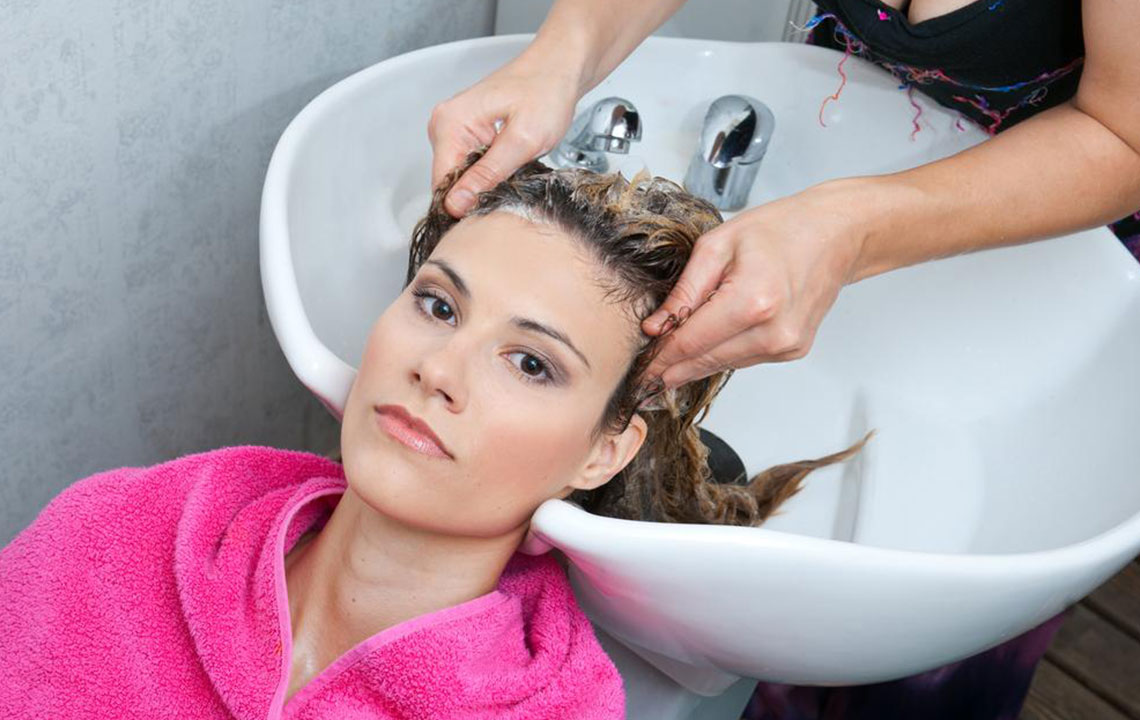Methods of Scalp Psoriasis Treatment
Psoriasis is a skin disorder that occurs when the immune system sends incorrect signals to the skin, causing the cells to mature extremely quickly. These new cells are formed within days instead of weeks causing the excess skin to pile up on the surface of the older skin, as the body is unable to shed the excess skin cells. This leads to a patchy formation on the skin surface called psoriasis. It can range from being “mild”, which involves reddish and small rashes, to “severe”, consisting of scaly and thick plaques.
Psoriasis can occur anywhere on the skin, but the scalp is one of the most common spots, seen in up to 50% of the cases.

It must be remembered that scalp psoriasis differs from person to person and thus the effect of the treatment might vary from person to person. Mentioned below are some of the scalp psoriasis treatments:
Over-the-Counter (OTC) Scalp Psoriasis Treatment
One can use OTC medications and products to begin the treatment with, and ease the itchiness caused. Some of OTC products to be used are :
- Coal tar shampoo: Coal tar, a byproduct of coal production, is one of oldest treatments for scalp psoriasis.
Prescription Treatment for Mild-to-Severe Scalp Psoriasis
When OTC medications don’t work, or in the case of severe scalp psoriasis, then one must consult their dermatologist. There are various topical scalp psoriasis treatments including:
- Anthralin: A cream to be applied once a day.
- Calcipotriene : A synthetic form of vitamin D, to be applied overnight.
- Betamethasone dipropionate : A combination of a steroid and vitamin D in the form of an ointment, to be used once a day.
- Tazarotene: A cream, gel, or foam based vitamin A treatment.
For severe scalp psoriasis your doctor may prescribe some other treatments, such as oral and injected drugs, for example adalimumb (Humira).
Ultraviolet Light
It has been noticed that for some people, scalp psoriasis tends to reduce in the presence of light, in such cases ultraviolet (UV) light is a preferable scalp psoriasis treatment option. Light therapy (phototherapy) involves exposing the skin to controlled amounts of natural and artificial light. One can use a hand-held device, with bristles like a toothbrush, which emits the UV light. The only restriction being that of your hair. Parting your hair in rows may help in the process. One must consult their dermatologist before beginning any such treatment.
Lifestyle and Alternative Scalp Psoriasis Treatment
In tandem with the medical treatments, inculcating certain behavioral changes into your daily routine can also reduce the negative impact of scalp psoriasis to a minimum.
- Some people have found effective method in battling the outbreaks by keeping their scalp moist and hydrated is using a moist towel or cloth wrapped around the head, or applying ice packs.
- Shampoos have been found to be more effective as they are able to penetrate the scalp better. This is possible if the hair is well groomed and kept short and clean. More the hair, more difficult it is to treat scalp psoriasis.
- Application of aloe vera extracted directly from the aloe vera plant leaves and coconut oil, applied directly on the scalp has been noticed in certain cases to reduce itching, inflammation, and scaling.
Scalp Psoriasis Treatment for Infants and Children
While psoriasis is more common amongst adults, even children have been known to be affected by scalp psoriasis. Mostly scalp psoriasis is mild amongst children, which allows for the scalp psoriasis treatment to include coal tar shampoos and even topical steroid.
In severe cases, scalp psoriasis treatment may include topical corticosteroid creams, Dovonex, or topical vitamin D analogs. However, all these should only be taken after consultation with the doctor and dermatologist.
Scalp Psoriasis Treatment – A Constant Battle
Scalp psoriasis treatment is a combined effort of lifestyle changes and medications. Exercises, food intake, diets, and stress levels also impact the psoriasis growth. Consult your doctor for the best treatment suitable for you. Your doctor will be able to tell you which treatment method you need, depending on your condition.

